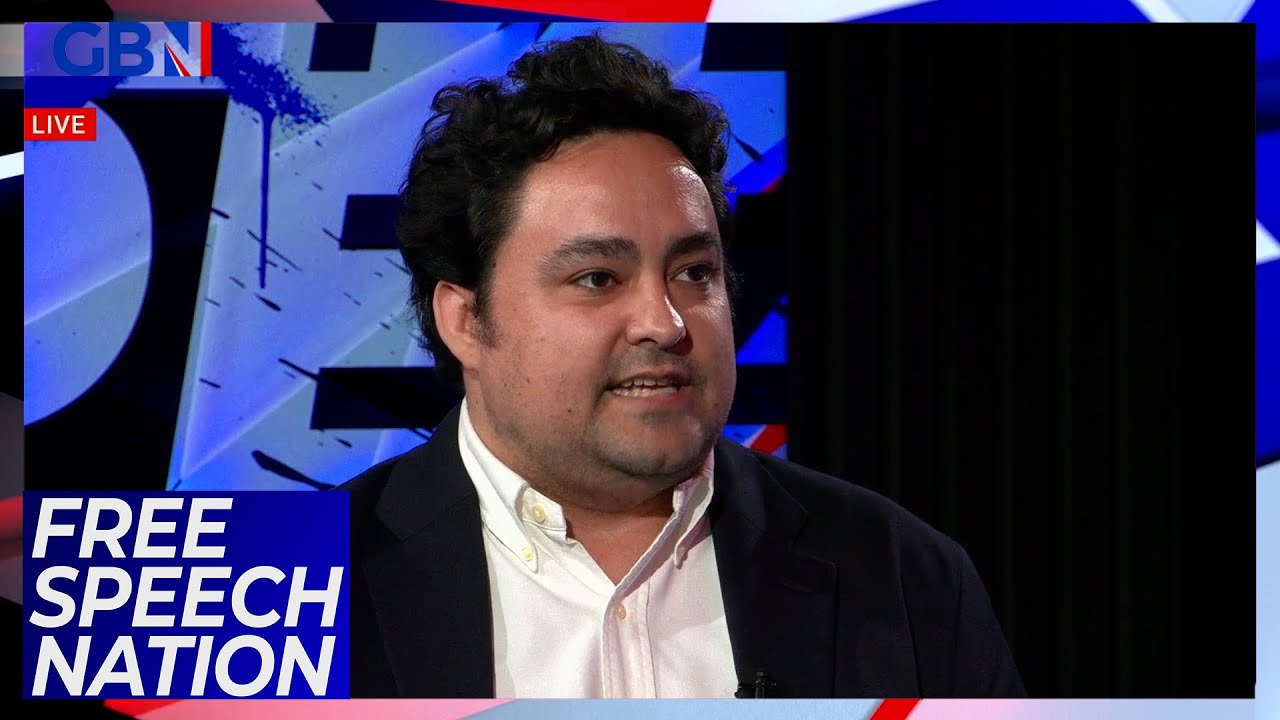Journalist Fraser Myers Explains The Collapse Of Silicon Valley Bank: 'It Made Too Much Money'
Unleash Your Creative Genius with MuseMind: Your AI-Powered Content Creation Copilot. Try now! 🚀
Welcome back to Free Speech Nation! Last week, Silicon Valley Bank, the most important bank in the tech scene, became the second-largest bank to fail in the history of the US. The bank has been taken into government ownership, and its holding company has filed for bankruptcy protection. This turn of events will have worldwide implications. To help us understand the situation, Fraser Myers, the deputy editor of spiked, has been writing about this, and he joins me today. Good evening, Fraser!
Fraser: Good evening! Thanks for having me. So, Silicon Valley Bank's collapse is significant for several reasons. It is the most important bank in the tech scene, and as we know, big tech plays a crucial role in the US economy. Around half of all venture capitalist-backed startups do their banking with Silicon Valley Bank. The bank's collapse is a result of its rapid growth during the COVID-19 pandemic. The central banks' actions, such as slashing interest rates and printing money, sent the stock market soaring while the real economy was stagnant. Silicon Valley Bank had more money than it knew what to do with and invested heavily in government bonds. However, when interest rates started to rise, those bonds became a risky investment. As a result, people started to lose confidence in the bank and began to withdraw their money, leading to its collapse.
The Mirage of Silicon Valley's Contribution to the Economy
Fraser: Silicon Valley's collapse raises questions about the true contribution of the tech economy. While it is true that Silicon Valley creates jobs and drives business activity, much of it is built on a mirage. Many tech companies, aside from the household names like Facebook and Google, do not actually contribute much to the economy. For example, Uber, one of the most well-known tech companies, does not generate a profit. Its low prices were subsidized by tech and banking money, with the expectation of eliminating competition and later raising prices. This kind of strategy is prevalent in the tech world, where companies sell a dream rather than innovative products.
The Illusion of Technological Advancement
Fraser: The tech industry often sells the idea of innovation and a better future, but the reality is often different. Artificial intelligence (AI), for example, is a buzzword today, but its products are not always reliable. Chatbots like GPT can be entertaining, but they often provide incorrect information. Google's AI made a mistake about the moon landing, costing the company billions in share losses. Similarly, Microsoft's AI called Bard insulted and threatened its users. Despite these flaws, people continue to buy into the dream of AI revolutionizing our world. This blind belief in technology can be dangerous and hinders critical thinking.
The Political Homogeneity of Silicon Valley
Fraser: Another concerning aspect of Silicon Valley is its political monoculture. Not only do many people fail to recognize the risks associated with tech products, but politically, they tend to align with a specific ideology. Data shows that more than 90% of tech donations go to the Democratic Party. Silicon Valley Bank, for instance, boasted diversity on its board, ticking all the boxes in terms of race, gender, and sexuality. However, it had only one person with top-level banking experience. This lack of expertise could have contributed to its failure.
The Unreliable Future Sold by Silicon Valley
Fraser: Silicon Valley's allure lies in its ability to sell a vision of the future. People are drawn to the belief that they are part of something different and revolutionary. Tech gurus, clad in hoodies and lounging around, present themselves as the face of innovation. However, the reality is often far from the dream. Many tech companies, backed by significant investments, fail to generate profits or create lasting products. Some companies, like juicero, a juicer that requires Wi-Fi connection, or a dog-walking app that received $300 million from SoftBank, highlight the absurdity of tech investments. There are even instances of fraud, such as Elizabeth Holmes' Theranos, which fooled investors and experts alike. The blind belief in tech's potential allows these con artists to thrive.
In conclusion, Silicon Valley Bank's collapse exposes the mirage of the tech economy. While it creates jobs and promotes innovation in some cases, there is a significant amount of smoke and mirrors. Many tech companies lack profitability and sell dreams rather than concrete products. The tech industry's political homogeneity and blind belief in future advancements further compound the problem. It is crucial for us to critically examine the promises made by Silicon Valley and to separate the real contribution from the illusion. Only then can we truly understand the risks and rewards of the tech world.

Related Recaps
- DJ KHALED - I DID IT (Lyrics) ft. Post Malone, Megan Thee Stallion, Lil Baby & DaBaby
- Before The Bell: Joshua vs Franklin Live Undercard (Hedges, Flynn & More)
- Tüm farklılıklarımızı kucaklayan Cumhuriyet 100 yaşında 🇹🇷
- Is Autopilot Investment app available on Android Google Play Store?
- Coping Mechanisms